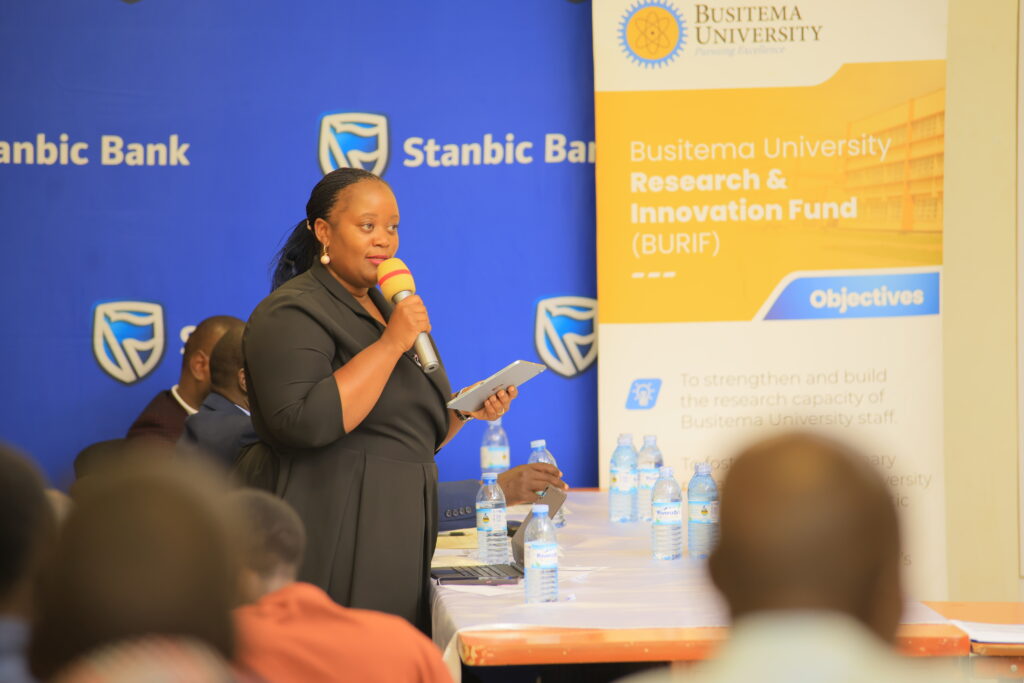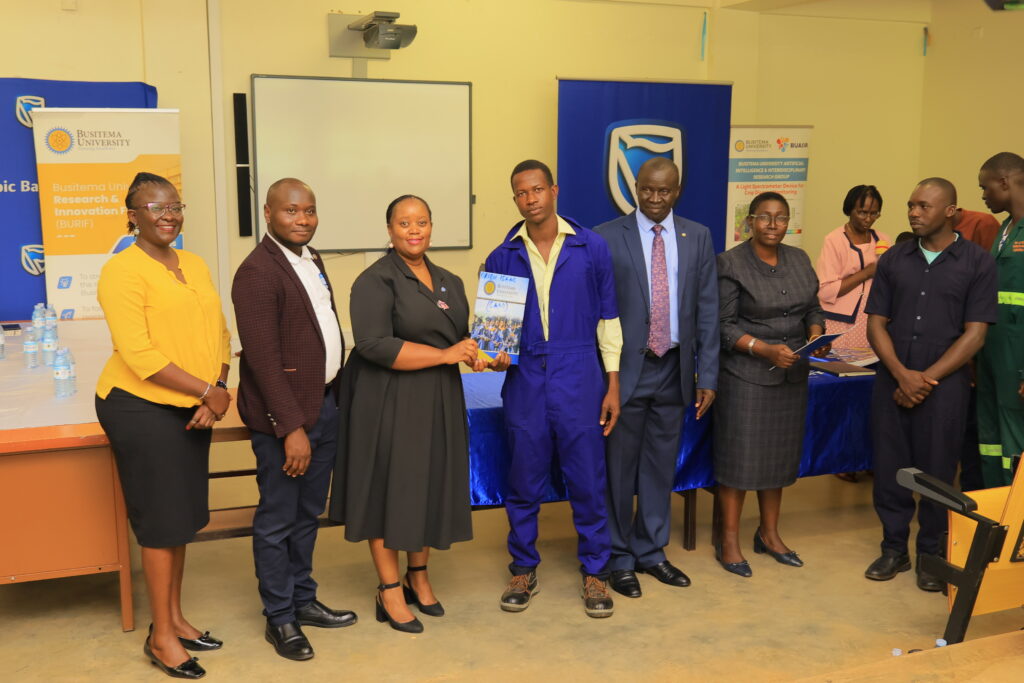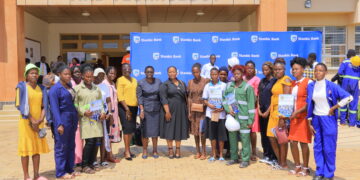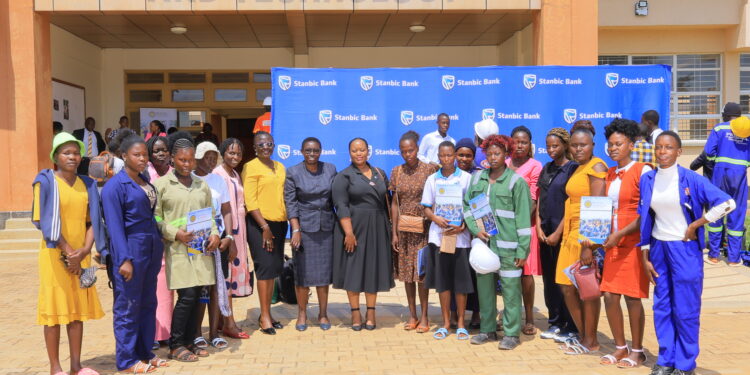Tororo – One hundred young Ugandans have completed a six-month vocational training programme at Busitema University, fully funded by Stanbic Bank Uganda.
The UGX 50 million initiative is part of the bank’s broader commitment to empowering youth through practical skills development, aligned with Uganda’s National Development Plan (NDP).
The programme, hosted by the Faculty of Engineering and Technology, focused on equipping participants with hands-on, market-relevant skills in welding and metal fabrication, post-harvest handling, bricklaying and concrete practice, irrigation technologies, and automotive repair.
Speaking during the graduation ceremony, Eng. Dr. Joseph Ddumba Lwanga, Dean of the Faculty, revealed that 100 students enrolled, with 97 completing the programme — a 97% completion rate.

“The high completion rate is a reflection of the strong commitment from all stakeholders — beneficiaries, sponsors, and implementers. Participants were selected on merit from areas served by Busitema University, including campuses in Nagongera, Namasagali, Arapai, Mbale, Pallisa, and Kaliro,” Dr. Ddumba said.
This year’s cohort marks the second phase of the youth-skilling programme, which began last year with 70 beneficiaries and has now expanded to 100.
Diana Ondoga, Stanbic Bank’s Manager for Corporate Social Investment, praised the success of the programme: “It is truly fulfilling to witness this group of young people graduate from a revitalised skills-based training programme. It reflects the power of collaboration and shared purpose in driving positive change.”
She noted that the initiative goes beyond philanthropy, forming part of Stanbic’s corporate mission: “At Stanbic Bank, our purpose is clear: ‘Uganda is our home, we drive her growth.’ This programme is an embodiment of that purpose — empowering young people with relevant, practical skills that allow them to create sustainable livelihoods and contribute to the country’s development.”

Ondoga added that the decision to partner with Busitema University was strategic, aimed at tapping into Uganda’s human resource potential through training that bridges the gap between education and industry. “In a world where practical skills often outweigh academic qualifications, this initiative responds directly to the need for industry-aligned education,” she said.
She also reflected on Stanbic’s broader youth empowerment journey, referencing the Stanbic National Schools Championship, which has impacted over 500,000 secondary school students over the last decade:
“But we asked ourselves — what about those who are no longer in school? That question gave birth to this programme. It’s an innovative step towards making sure that even out-of-school youth have a chance at a better future.”
Prof. Paul Waako, Vice Chancellor of Busitema University, urged graduates to uphold excellence in their work: “Let your work speak for you. As you serve your communities, remember that quality service and good customer care will determine your success. Qualifications alone are not enough.”
The graduation ceremony was also marked by inspiring personal stories.

John Siminyu, a graduate in welding, shared how the programme changed his trajectory: “After my S4, I stayed home helping on our poultry farm, which later failed. When I heard about this opportunity, I knew it was my chance. Now, I’m employed and learning even more through on-the-job mentorship.”
Christine Adikini, a new mother of twins from Buyende district, completed the course in irrigation technologies while pregnant: “It was challenging, but the support from instructors and fellow students kept me going. I’m grateful I wasn’t dropped — instead, I was encouraged to continue.”
Her husband, James Mugavu, noted that the training is already yielding results: “Christine has taught me irrigation techniques. We’ve set up nursery beds that survived harsh weather, thanks to her skills. We believe this is just the beginning of bigger opportunities, especially in agriculture.”
Ondoga concluded by emphasising Stanbic Bank’s inclusive development agenda: “We are intentional about uplifting women, youth, and farmers through practical, impact-driven initiatives. This programme is a true reflection of that mission.”











